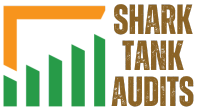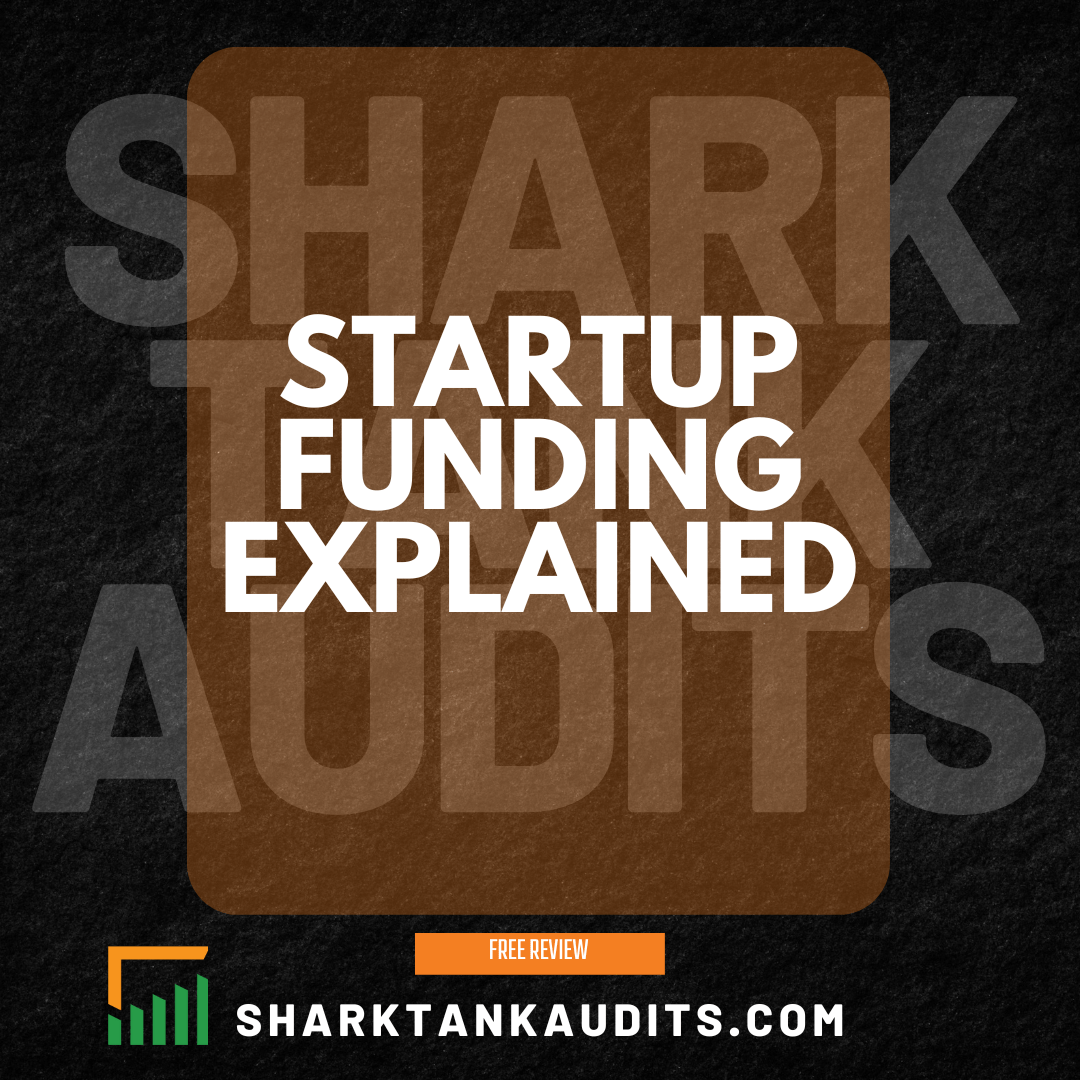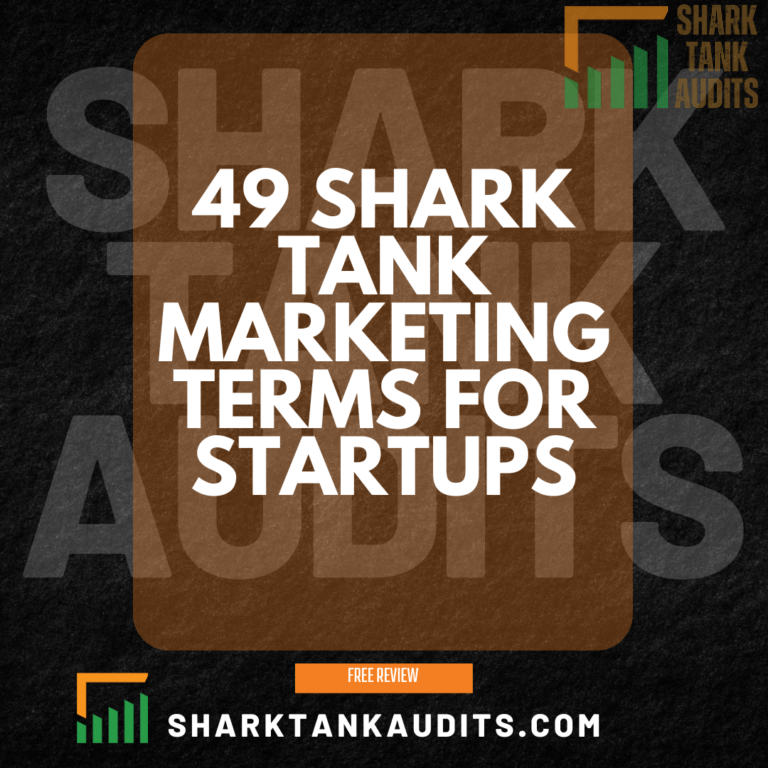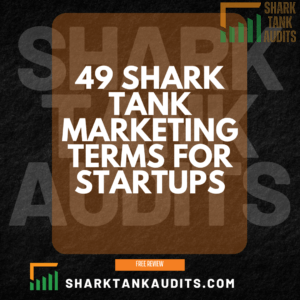Here are the 89 Most Common Terms Used in Shark Tank.

- Shark Tank: A television show where entrepreneurs pitch their business ideas to a panel of investors, known as “sharks”, in the hopes of securing funding.

- Pitch: A presentation in which an entrepreneur explains their business idea to the sharks.

- Equity: Ownership in a company, typically represented by shares of stock.

- Valuation: The estimated worth of a company or business idea. It is among the Most Common Terms Used in Shark Tank.

- Investor: A person or entity that provides funding to a business in exchange for ownership or a return on investment.

- Entrepreneur: Someone who starts a new business venture, often taking on financial risk in the hopes of achieving success.

- ROI: Return on Investment. The amount of money an investor makes on their investment relative to the amount of money they put in.

- Equity Stake: The percentage of ownership in a company that an investor receives in exchange for their investment.

- Sales: The total amount of revenue generated by a business from selling its products or services. It is the Most Common Terms Used in Shark Tank.

- Gross Margin: The percentage of revenue that a business keeps after deducting the cost of goods sold.

- Cash Flow: The amount of cash coming in and going out of a business.

- Licensing: An agreement in which a company grants another company the right to use its intellectual property, such as a trademark or patent, in exchange for a fee.

- Intellectual Property: The legal rights to intangible assets such as patents, trademarks, and copyrights.

- Manufacturing: The process of producing goods, typically in a factory setting.

- Prototype: A preliminary model or version of a product, used for testing and evaluation.

- Business Plan: A written document that outlines a company’s goals, strategies, and financial projections.

- Distribution: The process of getting a product from the manufacturer to the consumer. It is among the Most Common Terms Used in Shark Tank.

- Patent: A legal document that grants the inventor exclusive rights to use, manufacture, and sell an invention for a certain period of time.

- Trademark: A symbol, word, or phrase that distinguishes a company’s products from those of its competitors.

- Market Research: The process of gathering and analyzing information about a market, including consumer preferences and trends.

- Branding: The process of creating a unique name and image for a product or company.

- E-commerce: The buying and selling of goods and services online.

- Crowdfunding: The practice of funding a project or venture by raising small amounts of money from a large number of people, typically via the Internet.

- Marketing: The process of promoting and selling products or services.

- Target Market: The specific group of consumers that a product or service is intended for. It is among the Most Common Terms Used in Shark Tank.

- Due Diligence: The process of investigating and verifying the claims made by a company or entrepreneur.

- Equity Financing: The process of raising capital by selling shares of ownership in a company.

- Angel Investor: An individual who provides capital to a startup in exchange for ownership or a return on investment.

- Venture Capitalist: A professional investor who provides capital to startups in exchange for equity stakes.

- Return on Investment: The amount of money an investor earns relative to the amount of money they put in. It is among the Most Common Terms Used in Shark Tank

- Net Profit: The amount of revenue a company earns after deducting all expenses.

- Patent Pending: A term used to indicate that a patent application has been filed but not yet granted.

- Royalty: A percentage of revenue paid to the owner of a patent or other intellectual property in exchange for the right to use it. It is among the Most Common Terms Used in Shark Tank.

- Non-Disclosure Agreement: A legal agreement in which two parties agree not to disclose confidential information.

- Distribution Channel: The path that a product takes from the manufacturer to the consumer. It is among the Most Common Terms Used in Shark Tank.

- Equity Crowdfunding: A type of crowdfunding where investors receive equity in the company in exchange for their investment.

- Scalability: The ability of a business to grow and expand rapidly without encountering significant barriers.

- Proof of Concept: Evidence that a product or business idea can work in practice, typically demonstrated through a prototype or pilot project.

- Exit Strategy: A plan for how investors will eventually sell or divest their stake in a company, typically through an IPO or acquisition. It is among the Most Common Terms Used in Shark Tank.

- Intellectual Property Infringement: The unauthorized use or reproduction of intellectual property belonging to another party.

- Patent Troll: A person or company that acquires patents to make money through litigation or licensing fees.

- Competitive Advantage: A factor that gives a company an edge over its competitors, such as lower costs, better technology, or stronger brand recognition.

- Sweat Equity: The value of work or services contributed by a company’s founders or employees instead of financial investment.

- Pivoting: The process of changing a business strategy or direction in response to new information or market conditions. It is among the Most Common Terms Used in Shark Tank.

- Debt Financing: The process of raising capital by borrowing money, typically through loans or lines of credit.

- Intellectual Property Assignment: The transfer of intellectual property ownership from one party to another, typically through a legal agreement.

- Minimum Viable Product: The simplest version of a product that can be created to test its viability in the market.

- Customer Acquisition Cost: The cost of acquiring a new customer, typically calculated by dividing marketing and sales expenses by the number of new customers. It is among the Most Common Terms Used in Shark Tank.

- Dilution: The reduction of an investor’s equity stake in a company as a result of additional funding rounds or the issuance of new shares.

- Gross Sales: The total revenue a business earns from product or service sales before any deductions are made.

- Defensibility: The ability of a company to maintain a competitive advantage and defend against competition over time.

- Intellectual Property Portfolio: A collection of intellectual property assets, such as patents, trademarks, and copyrights, owned by a company.

- Pre-Money Valuation: The estimated value of a company before any investments are made. It is among the Most Common Terms Used in Shark Tank.

- Break-Even Point: The point at which a company’s revenue equals its expenses, resulting in zero profit.

- Social Enterprise: A business that prioritizes social and environmental goals, in addition to financial goals.

- Subscription Model: A business model in which customers pay a recurring fee to access a product or service. It is among the Most Common Terms Used in Shark Tank.

- Lead Investor: The main investor in a funding round, who often takes a leadership role in managing the investment.

- Bridge Financing: A short-term loan or investment used to bridge the gap between funding rounds.

- Niche Market: A small, specialized market segment with unique needs or preferences.

- Term Sheet: A preliminary agreement outlining the terms of a potential investment.

- Intellectual Property Licensing: The process of granting another party the right to use intellectual property in exchange for a fee.
Also Read:- 49 Shark Tank Marketing Terms for Startups

- Patent Pending: A term used to indicate that a patent application has been filed but not yet granted.

- Board of Advisors: A group of external experts who provide guidance and advice to a company’s management team. It is among the Most Common Terms Used in Shark Tank.

- Founder’s Agreement: A legal agreement between co-founders that outlines ownership, responsibilities, and other key terms. It is among the Most Common Terms Used in Shark Tank.

- Competitive Landscape: The overall competitive environment in which a company operates, including its competitors, market trends, and other factors.

- Customer Lifetime Value: The total amount of revenue that a customer is expected to generate for a company throughout their relationship. It is among the Most Common Terms Used in Shark Tank.

- Market Share: The percentage of total market sales that a company captures.

- Equity Vesting: The process by which an employee or founder’s equity stake in a company is earned over time, typically based on a vesting schedule.

- Cap Table: A spreadsheet that outlines the ownership structure of a company, including equity stakes, investor contributions, and other key details.

- Intellectual Property Due Diligence: A process of evaluating a company’s intellectual property assets and their legal protections, typically done before an investment or acquisition.

- Operating Agreement: A legal agreement that outlines the management structure, ownership, and other key terms of a business entity. It is among the Most Common Terms Used in Shark Tank.

- Revenue Model: A description of how a company generates revenue, including pricing strategies and revenue streams.

- Value Proposition: A statement describing the unique benefits that a product or service offers to customers. It is among the Most Common Terms Used in Shark Tank.

- Term Loan: A type of loan that is repaid over a fixed term, typically with a fixed interest rate.

- Angel Investor: A high-net-worth individual who invests in startups or early-stage companies, often in exchange for equity.

- Market Segmentation: The process of dividing a market into smaller, distinct groups based on demographic, geographic, or other factors.

- Proof of Revenue: Evidence that a business is generating revenue, often demonstrated through financial statements or other documentation.

- Intellectual Property Audit: A process of reviewing a company’s intellectual property assets and identifying any potential legal issues or gaps in protection.

- Sales Funnel: A visual representation of the sales process, from lead generation to closing a sale.

- Liquidation Preference: A clause in an investment agreement that determines the order in which investors are repaid in the event of a liquidation or exit.

- Due Diligence: A process of evaluating a company’s financial and operational performance, as well as any potential legal or regulatory issues, before making an investment or acquisition.

- Market Size: The total addressable market for a product or service, typically measured in terms of revenue or number of customers.

- Burn Rate: The rate at which a company is spending its cash reserves, typically calculated every month.

- Product-Market Fit: The degree to which a product or service meets the needs and preferences of a particular market segment.

- Gross Margin: The difference between a company’s revenue and the cost of goods sold, expressed as a percentage of revenue.

- Runway: The amount of time that a company’s cash reserves will last at its current burn rate.

- Pro Forma Financials: Financial statements that project a company’s future performance, based on assumptions and estimates.

- Strategic Partnership: A relationship between two or more companies that work together to achieve mutual business goals.

- Intellectual Property Strategy: A plan for how a company will create, protect, and leverage its intellectual property assets.





89 Most Common Terms Used in Shark Tank